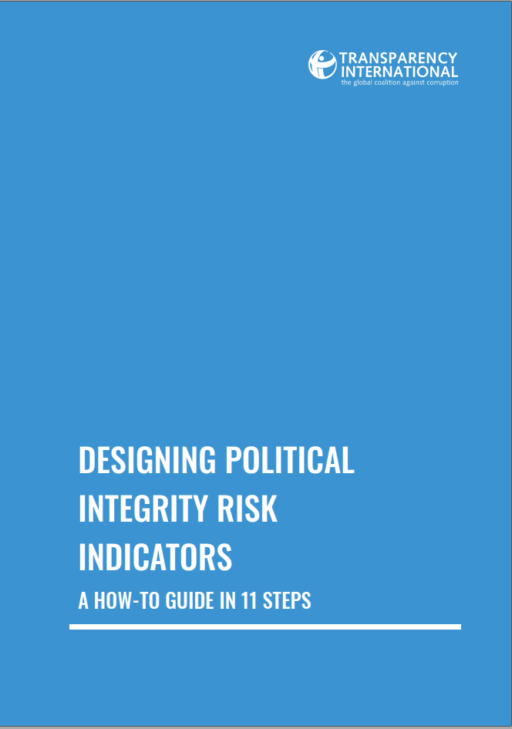Designing Political Integrity Risk Indicators: a How-To Guide in 11 Steps
Description
The need for the development of specific indicators of corruption – direct or indirect – has grown over the last decade. This can be attributed in part to the increasing recognition of the significant role corruption plays in adverse governance outcomes, such as poor health and environmental degradation. The demand for indicators has also emerged out of frustration with a lack of capacity to precisely measure the prevalence of various corrupt practices.
There are challenges in monitoring corrupt practices. Naturally, behaviour typically hidden from the public is hard to measure. In addition, corrupt behaviours take many forms and involve different kinds and numbers of actors, while the standards governing corrupt transactions vary in scope. As such, it would be ineffective to apply a universal set of common corruption indicators across the globe.
In order to avoid the pitfalls of over-simplifying the measurement of corruption for the benefit of informed policy decisions, this short guide walks the reader through the steps of developing, implementing and validating indicators of corruption in the political domain.
This guide is intended to help civil society groups and organisations develop and apply measurement skills to better monitor political corruption, without delving into statistical and data science technicalities.
This step-by-step guide follows a simple, intuitive logic; in order to create a monitoring plan, you need to:
- figure out what exactly you want to measure;
- identify, gather and organise the data you will need for measuring;
- develop, tailor and validate your indicators for the data you collect; and
- document the resulting indicators as implemented in your data for others to be able to use your work.
Authors
Viktoriia Poltoratskaya (Government Transparency Institute and Central European University),
Co-authors:
Mihály Fazekas (Government Transparency Institute and Central European University) and Bence Tóth (Government Transparency Institute and University College London).
Reviewers:
Jon Vrushi and Jorge Valladares (Transparency International Secretariat)
Date
14/04/2022
Tags
 Download PDF
Download PDF
